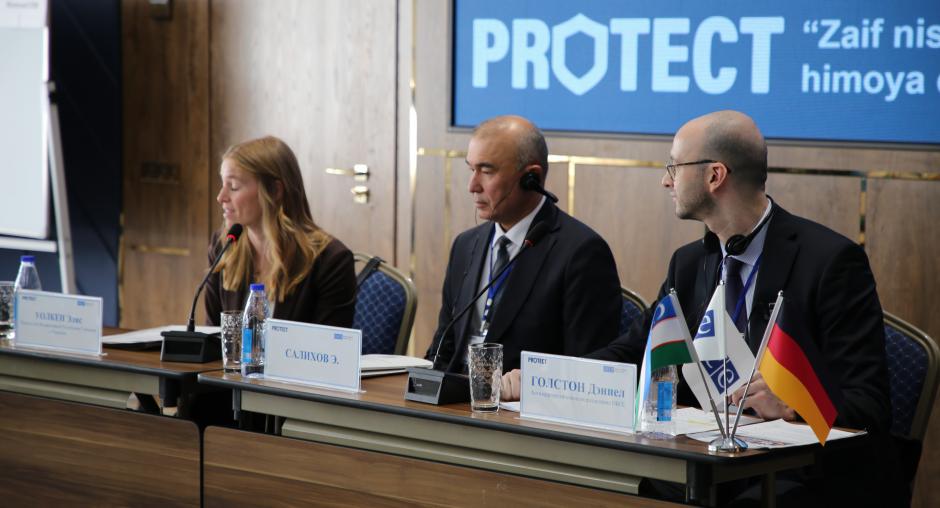OSCE launches Project PROTECT in Uzbekistan at national awareness-raising workshop on critical infrastructure protection from terrorist attacks

From 13 to 15 December 2023, national experts from eight offices and government ministries in Uzbekistan joined an interactive workshop on the protection of critical infrastructure from terrorist attacks. The event served as the first activity in the OSCE’s newly-launched initiative called Project PROTECT. It was organized by the OSCE Secretariat’s Transnational Threats Department (TNTD), with support from the OSCE Project Co-ordinator in Uzbekistan.
“Project PROTECT on the Protection of Vulnerable Targets from Terrorist Attacks” seeks to strengthen national approaches across the OSCE area to protecting vulnerable targets from terrorist threats and other hazards. As part of Project PROTECT’s capacity-building efforts, this workshop was designed to raise awareness on, and build a common understanding of, the need to protect critical infrastructure from terrorist attacks in a human rights-compliant manner, gather good practices from Uzbekistan, and identify priorities for future project activities in the country.
“Uzbekistan considers co-operation with the OSCE part of an important international partnership, contributing to the mutual benefit of both Uzbekistan and Europe and promoting meaningful collaboration,” said Erkin Salikhov, Chairman of the Committee on Issues of Defense and Security of the Legislative Chamber of the Oliy Majlis of Uzbekistan, during his opening remarks. “Collaboration between Uzbekistan and the OSCE contributes to security, stability, and economic development in the region, as well as promoting democratic reforms and protecting human rights,” he added.
“Project PROTECT looks forward to bringing communities together at the national level – similar to today’s event – and across the region,” said Daniel Golston, Project PROTECT Lead at TNTD. “This will help us learn from one another, support the development of critical infrastructure protection frameworks that are appropriately tailored to the national context, and address evolving terrorist threats - all while being equally respectful of human rights and fundamental freedoms,” he added.
During the workshop, participants explored core concepts for effective critical infrastructure protection from terrorist attacks, including physical security practices, insider threat mitigation, risk management frameworks, business continuity management, and infrastructure interdependencies. They also discussed the importance of partnerships within and outside government, including with civil society and the business community. Among those joining the event were representatives from the United Nations Office of Counter-Terrorism.
This workshop was organized with financial support from Germany. Moving forward, the OSCE will support the design of nationally tailored actions under Project PROTECT in Uzbekistan.
